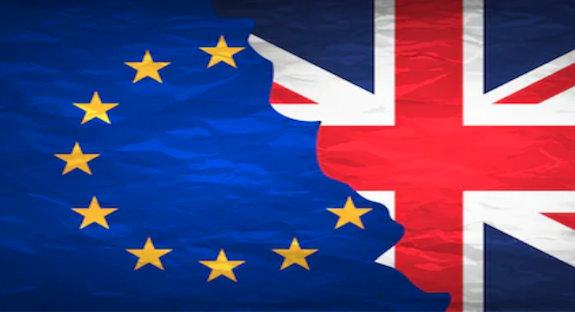In September 2018, the UK government published a series of notices explaining how product compliance regulations would apply if a deal is not struck between the UK and the EU on the terms of Brexit – a “no deal” scenario. Specifically, the UK government commented on how goods traded in accordance with the Mutual Recognition Principle and the EU New Approach Directives would be affected a “no deal” Brexit.
We outline the implications of the main UK government notices on the impact of a “no deal” Brexit on product compliance regulation below.
Product compliance pre-Brexit
Mutual Recognition Principle
Safety requirements of products such as textiles, furniture, cooking utensils and bicycles, to name a few, are regulated under the Mutual Recognition Principle.
Non-harmonised goods, which are subject to national regulations rather than EU standards, can circulate on the EU market under the Mutual Recognition Principle. In a nutshell, goods which are compliant with the national laws of one EU Member State may sell that good in another EU Member State, even if the national requirements of the latter are different to those of the former in relation to that good. EU Member States’ right to restrict the circulation of these goods is limited to concerns regarding public safety, policy and morality.
New Approach Directives
Cosmetics, toys, medical devices, radio equipment and machinery, amongst other products, are currently regulated under the EU New Approach Directives.
The New Approach Directives set out rules, or “essential safety requirements”, that must be met prior to placing certain goods on the EU market. Conformity with essential safety requirements can be demonstrated in different ways, depending on the type of product. For example, most toys manufacturers can show conformity through a process of “self-declaration”. Other products must be tested by an EU-accredited body, known as notified bodies. For many products, manufacturers must affix a CE marking to indicate conformity with any applicable EU directives.
Product compliance in a “no deal” Brexit
In the event of a “no deal” Brexit, from 29 March 2019 UK businesses exporting non-harmonised goods to the EU market would need to meet the national requirements of the first EU country where they are placed on the market. It may therefore no longer suffice that the goods meet UK national requirements and so this could add an extra layer of compliance for UK businesses. Similarly, non-harmonised goods being imported into the UK by UK or non-UK businesses would need to ensure that the goods meet UK national requirements in relation to those goods.
In the same scenario, goods caught by the New Approach Directives that require third party testing and were tested by a UK-based notified body would need to be retested by an EU-recognised conformity assessment body before being placed on the EU market. Alternatively, manufacturers may arrange to transfer their files to an EU-recognised notified body to allow certificates of conformity issued by a UK-based notified body to continue to be valid. Manufacturers seeking to place goods on the UK market after 29 March 2019 which meet EU requirements may continue to do so without further re-testing for a limited but unknown period of time. It is not, however, entirely clear from the UK Government’s notice how goods which do not require third party testing would flow between the UK and the EU following a “no deal” Brexit.
[Veronica Webster/Joanna Ketteley/Bird & Bird – original article]
[Picture – Shutterstock]





